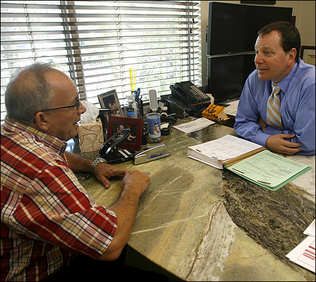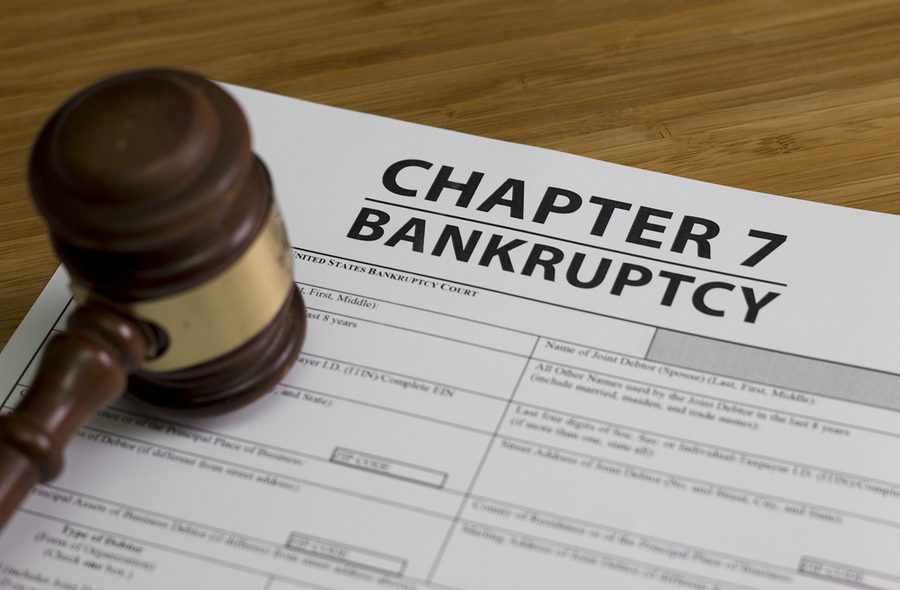When filing for bankruptcy, it is extremely important that you fully disclose all information requested and that all information provided be accurate and true. Although, most people who file for bankruptcy are honest hardworking people, some individuals can be tempted to hide property and assets. This is called bankruptcy fraud, which is a federal crime that the U.S. Department of Justice takes very seriously.
Bankruptcy fraud occurs when a person knowingly and fraudulently commits certain prohibited acts in their bankruptcy case. It is estimated that somewhere around 10 percent of all U.S. bankruptcy filings include some form of bankruptcy fraud. If this fraud is discovered, the person committing the fraudulent act can face fines up to $250,000 and even imprisonment for up to five years in federal prison.
The four most common types of bankruptcy fraud include: concealment of assets, petition mills, multiple-filing schemes, and bust-out schemes. It must be shown that the person intended to commit the crime of bankruptcy fraud, which means that intent to deceive must be present. The person must have planned to commit the fraudulent act. If, for instance, someone makes a mistake in their forms or accidentally forgets an asset when preparing the documents, fraudulent intent is not necessarily there.
One of the most common types of bankruptcy fraud is concealment of assets. Concealing assets accounts for approximately 70 percent of all bankruptcy fraud cases reported. A person should never assume they can outsmart the bankruptcy court. Bankruptcy trustees are experts at finding undisclosed cash, property, vehicles, boats, jewelry, antiques, and collectibles. If you are caught trying to hide assets, the consequences are big. Your discharge will be denied, and you will be unable to discharge the debts you listed in a subsequent bankruptcy filing.
Another form of bankruptcy fraud is making false statements either in sworn documents filed with the court or in person to the bankruptcy trustee. Debtors are required to fill out a bankruptcy petition and a number of other supporting documents, which includes a schedule of income and assets as well as a sworn financial declaration. By submitting these documents, you are swearing that all information provided is completely true.
Bankruptcy fraud can also be committed by someone filing too many bankruptcy cases in two or more states. These filings can be made using the same name and information or also false name and information, so long as they were filed by the same person. In these types of cases, the debtor will list the certain assets on some claims while other assets on the others, thus confusing the system. The ultimate goal of these multiple filings is to keep assets from total liquidation, giving the person time to conceal assets he or she wishes to keep.
Another form of bankruptcy fraud that seems to focus heavily on non-English speaking claimants involves bankruptcy petition mills. These “mills” are fraudulent schemes committed by a third-party, where that person claims to be a consultant who can help someone avoid eviction. That person gets all of the tenant’s information and files a bankruptcy petition without the tenant ever knowing. While the bankruptcy case is pending, the perpetrator of the crime will often completely clean out the tenant’s bank accounts and destroy his or her credit. Sadly, these types of schemes are on the rise, especially in areas where many non-English individuals reside.
Click here to read more on this story.
If you have questions on this topic or are in financial crisis and considering filing for bankruptcy, contact an experienced Miami bankruptcy attorney who can advise you of all of your options. As an experienced CPA as well as a proven bankruptcy lawyer, Timothy Kingcade knows how to help clients take full advantage of the bankruptcy laws to protect their assets and get successful results. Since 1996 Kingcade Garcia McMaken has been helping people from all walks of life build a better tomorrow. Our attorneys’ help thousands of people every year take advantage of their rights under bankruptcy protection to restart, rebuild and recover. The day you hire our firm, we will contact your creditors to stop the harassment. You can also find useful consumer information on the Kingcade Garcia McMaken website at www.miamibankruptcy.com.






